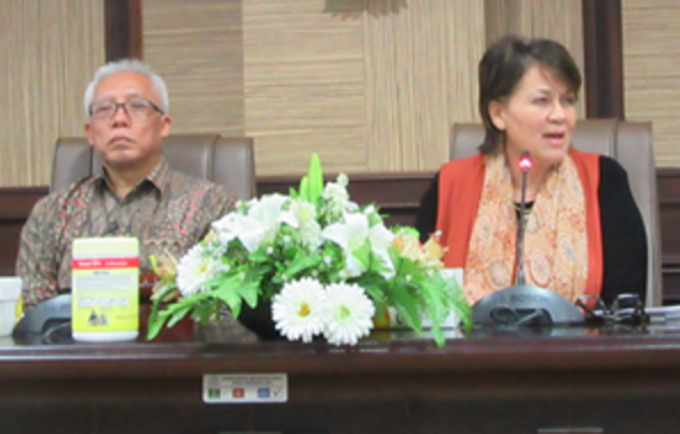JAKARTA, 15 November 2016: At today’s social media campaign, Deputy for Population Control Management of the National Population and Family Planning Board (BKKBN), Wendy Hartanto, said that greater attention should be given to ensuring the health, wellbeing and empowerment of girls aged 10 year old to build their potential.
The campaign was held to launch the 2016 State of World Population (SWOP) Report with this year’s theme is “10-year old girls: How our future depends on a girl at this decisive age.”
There are around 2.27 million 10-year-old girls in Indonesia, according to the 2015 Intercensal Population Survey. While the figure represents only around 1% of the total population, these girls will impact the future of the country. He highlighted the fact that 3,950 girls married at the age of 10. “All of these girls do not attend school. They are not ready to have a family or to get pregnant and they are also prone to domestic violence,” he said in the opening speech on behalf of the Head of BKKBN. Delaying the marriage age is important as it restricts girls’ opportunity to attend school.
UNFPA Representative, Dr. Annette Sachs Robertson, shared a similar view. “Educating girls has been described as the world’s best investment, especially at secondary and tertiary levels, because it increases economic opportunity for women, girls and their families,” she explained. The country will in turn benefit as educated girls contribute to increasing a nation’s productivity and promote economic growth. They too will likely invest in their children’s health, education and empowerment.
“I am quite sure Indonesia can do it. Let us work together to improve girls’ education, to improve her access to universal health information and services, including reproductive health, to ensure that she has age-appropriate life skills education, to address harmful practices, including increasing the age of first marriage, and to prevent gender-based violence,” Dr. Robertson said, stressing that involvement of all stakeholders, including parents and communities are needed to realize this.
Both speakers urged the participating bloggers and vloggers, consisting of young people, journalists and advocates of health, education and gender issues to continue actively advocating the issues of girls for conducive policies and programmes.
At the event, participants also learned about tips to make short videos and photos for their social media contents and they also broadcasted SWOP 2016 messages together at the end of the event.

